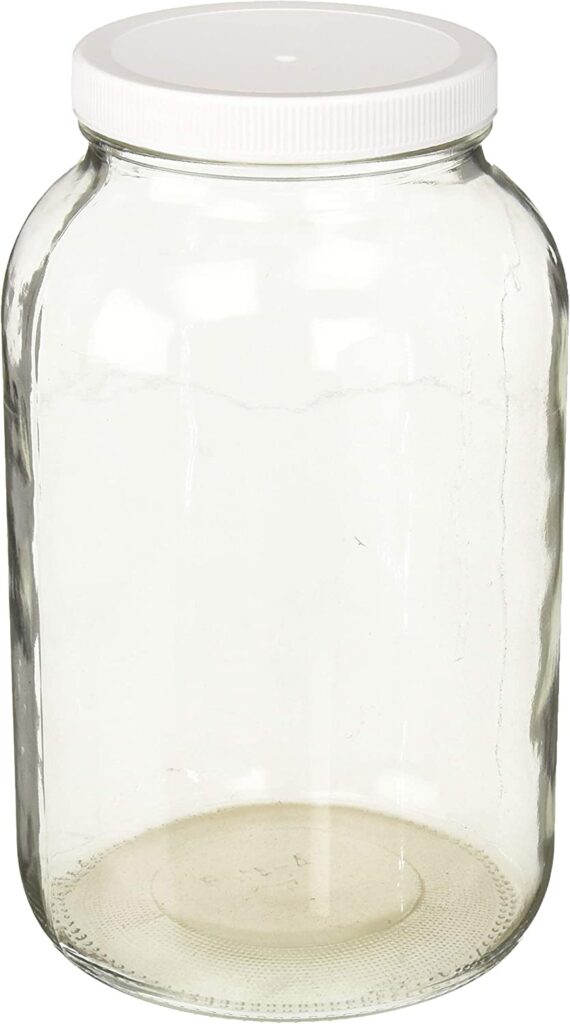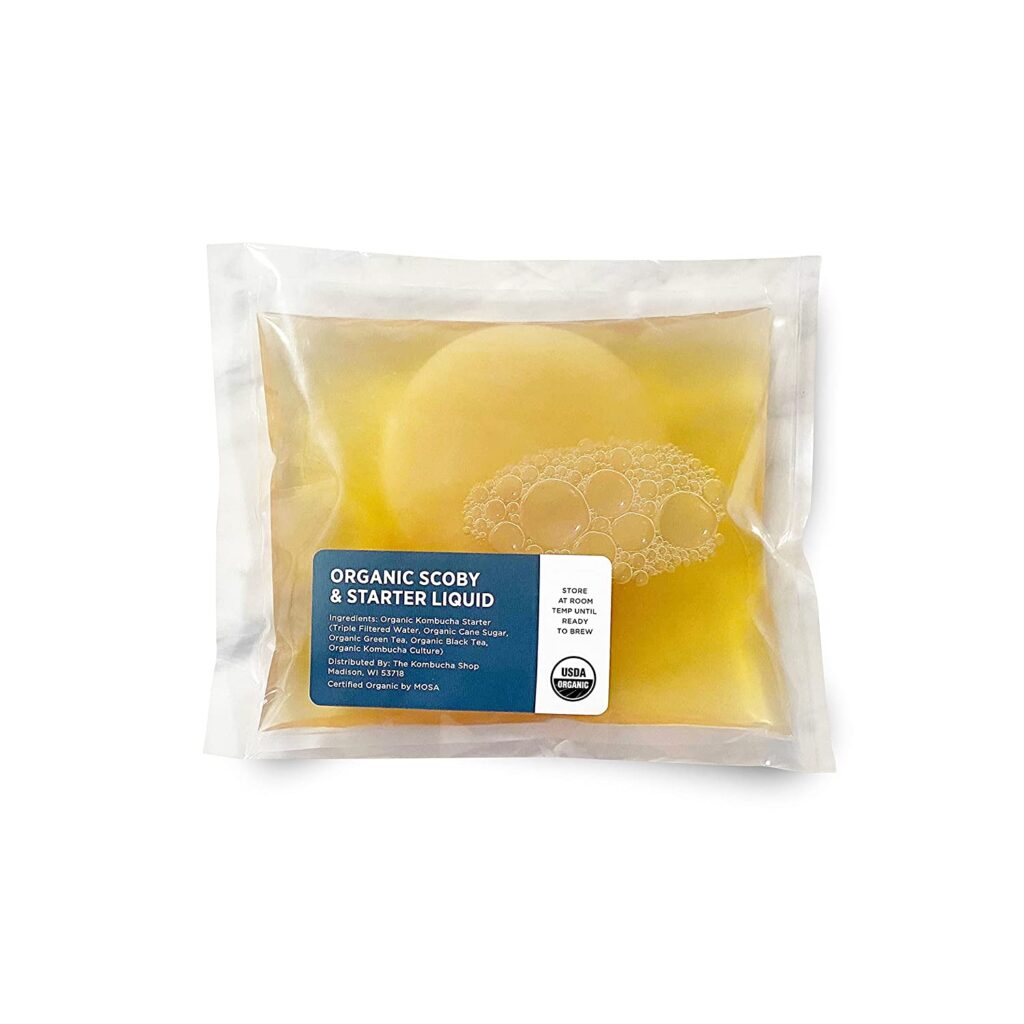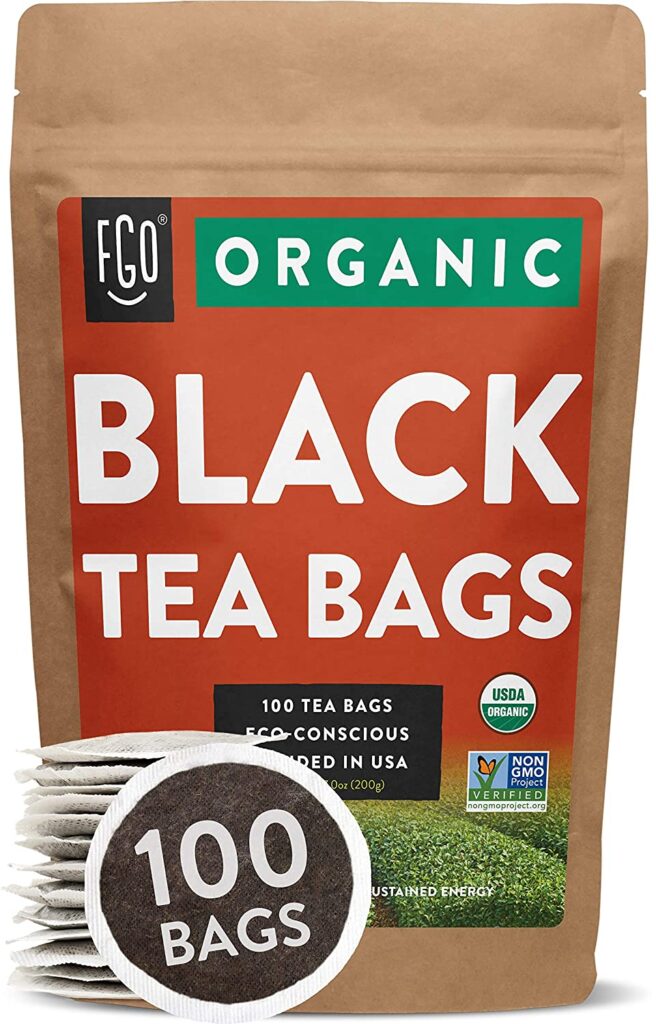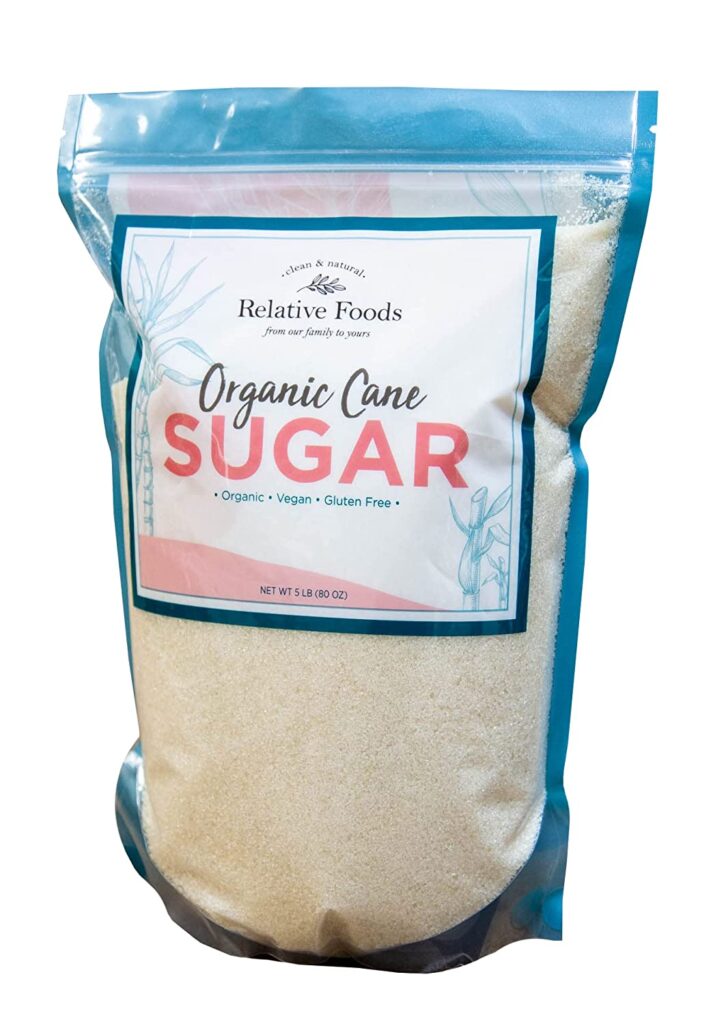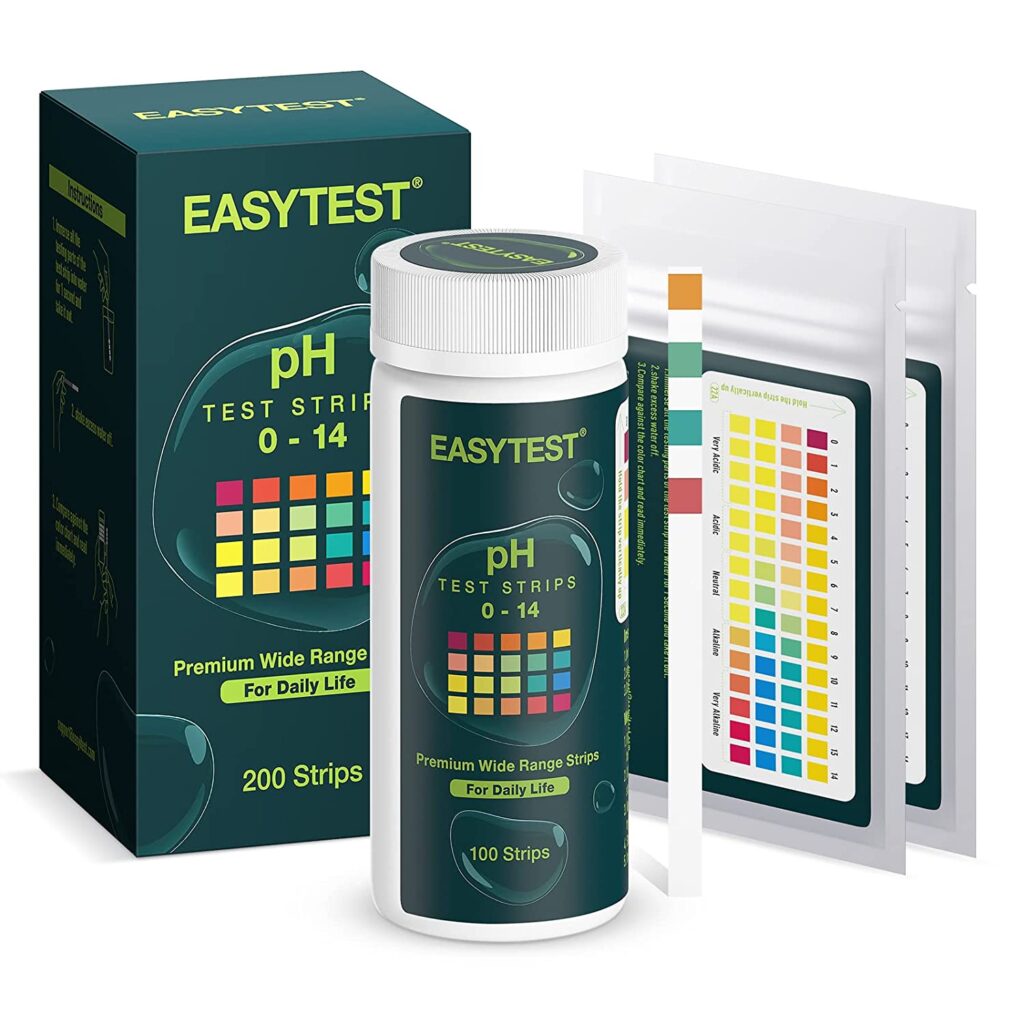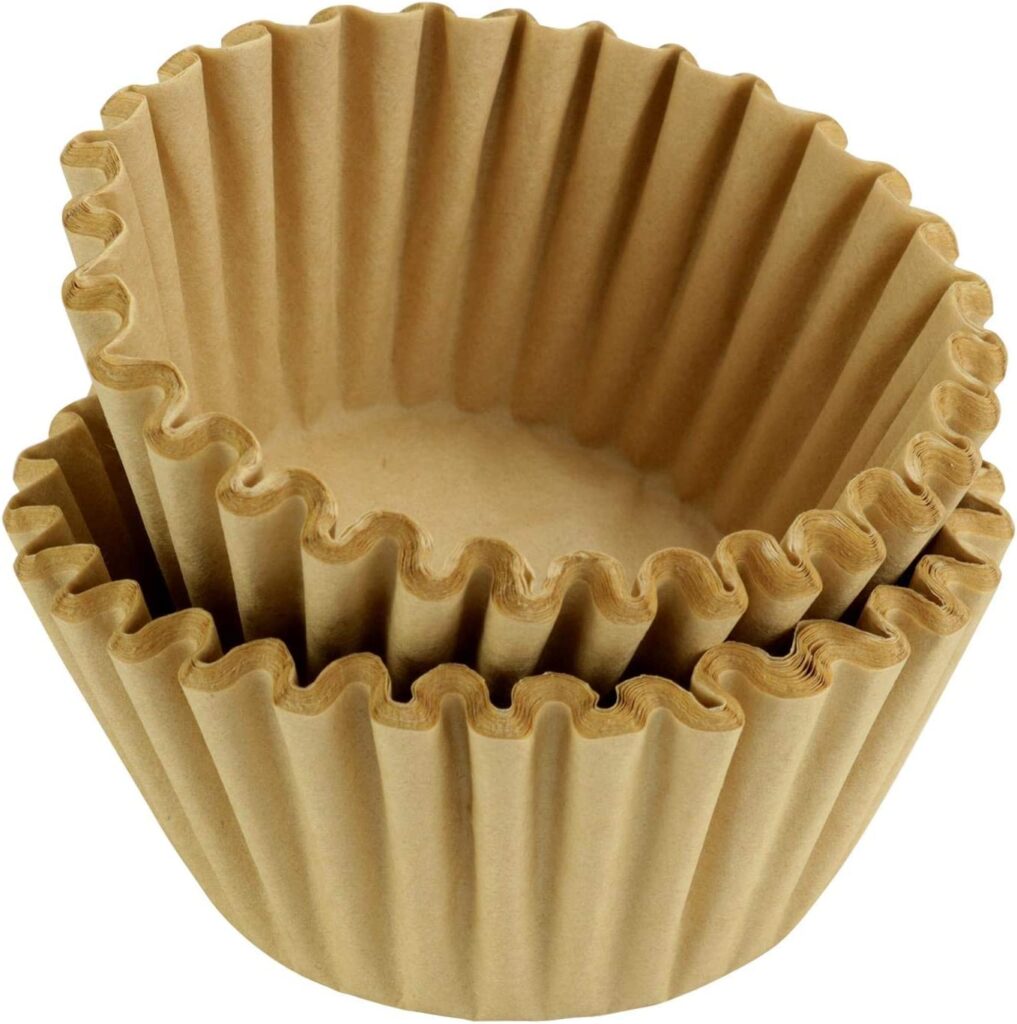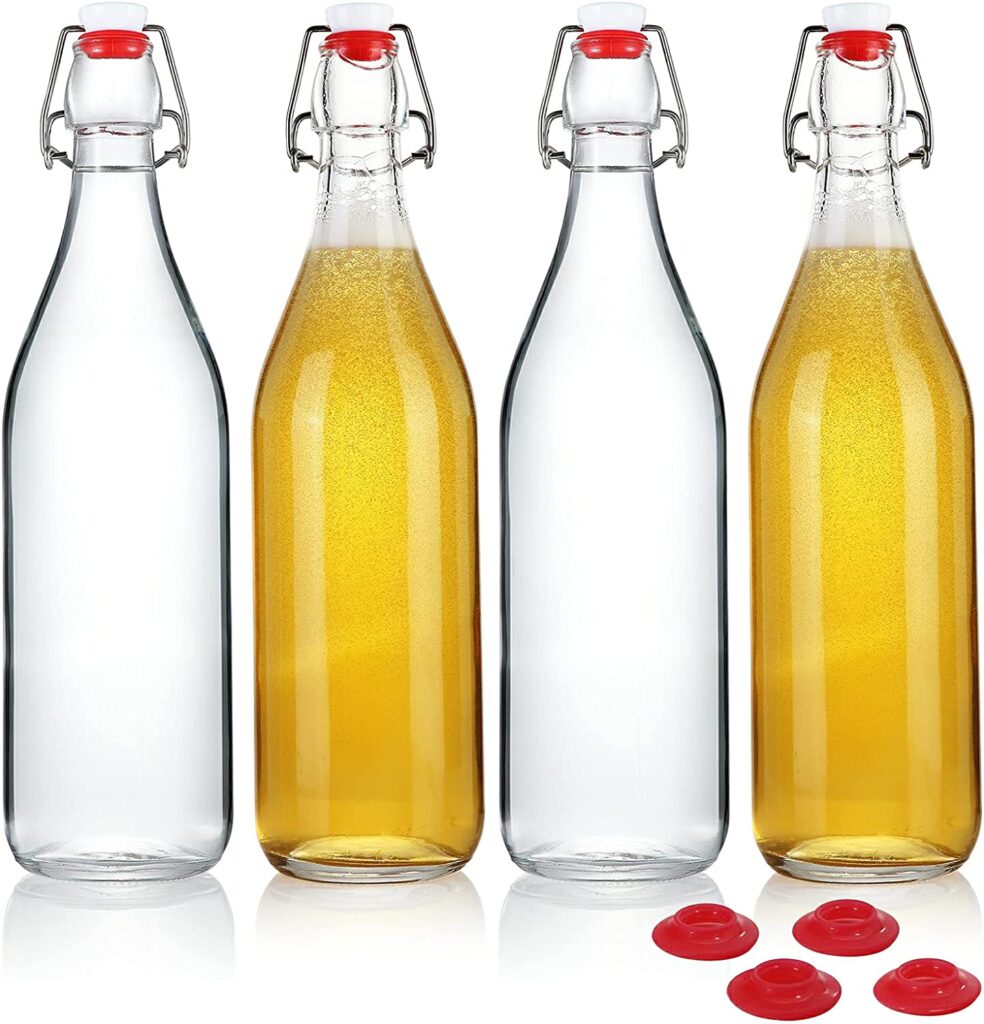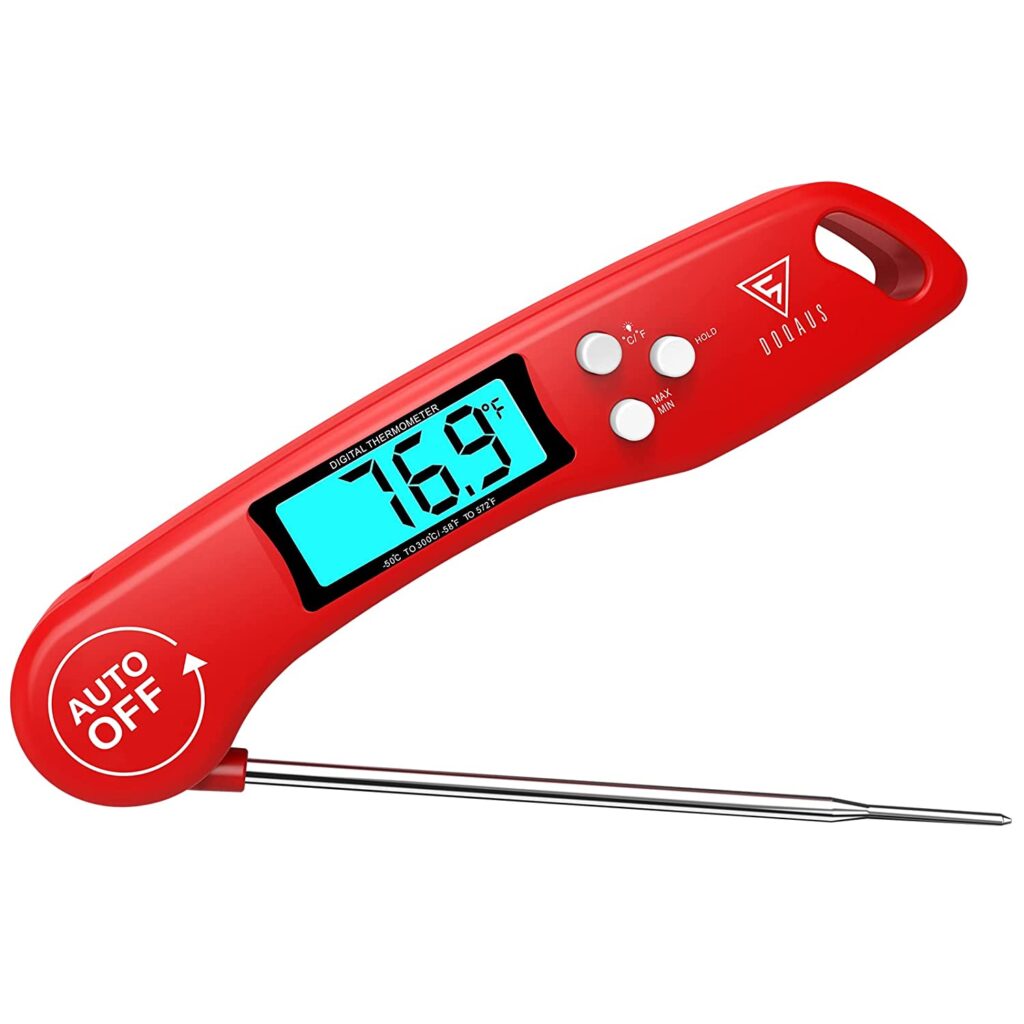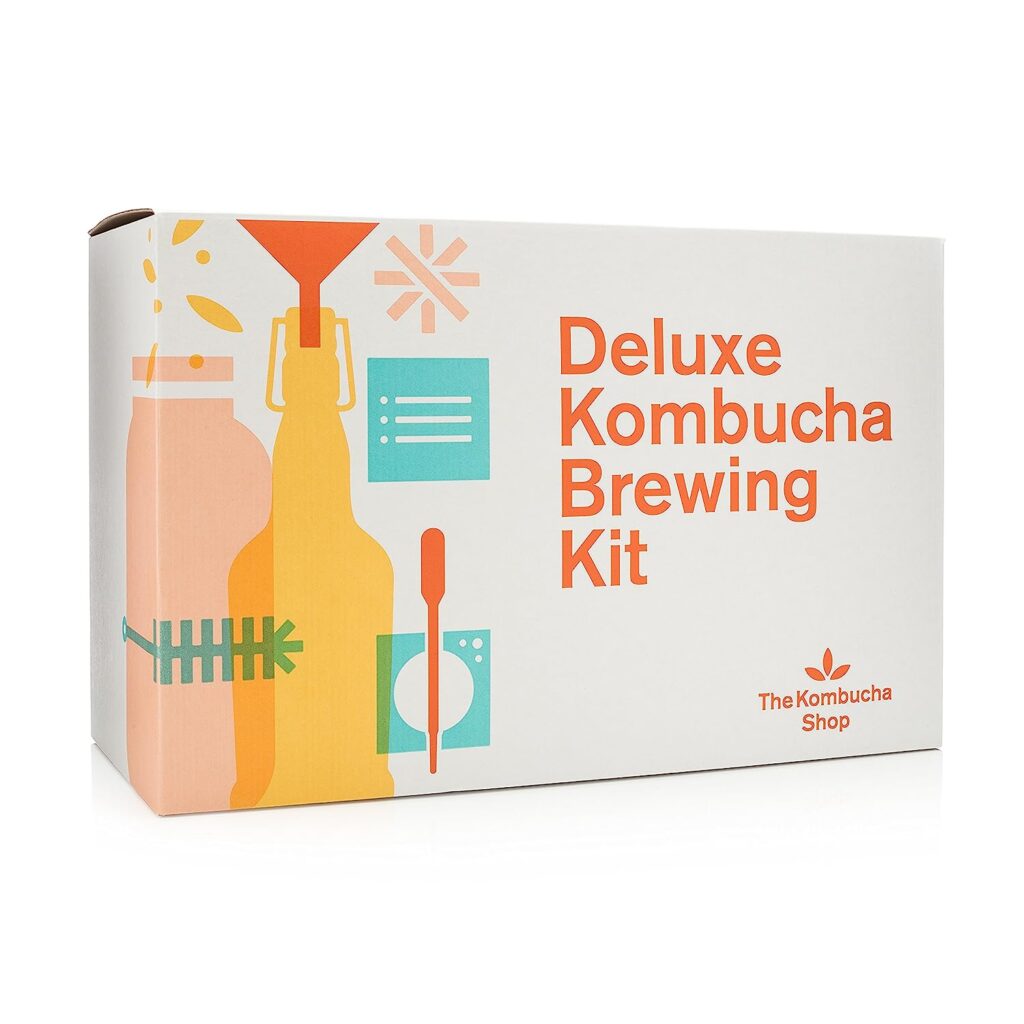Are you a kombucha enthusiast looking to embark on your brewing journey? Look no further! In this article, we will guide you through the process of you shop kombucha supplies. Whether you’re a beginner or an experienced brewer, having the right equipment and ingredients is crucial for crafting delicious and healthy kombucha. Let’s explore the essential supplies you’ll need to create your very own fizzy, probiotic-rich beverage.
Shop Kombucha Supplies: Everything You Need for Brewing Your Own Kombucha
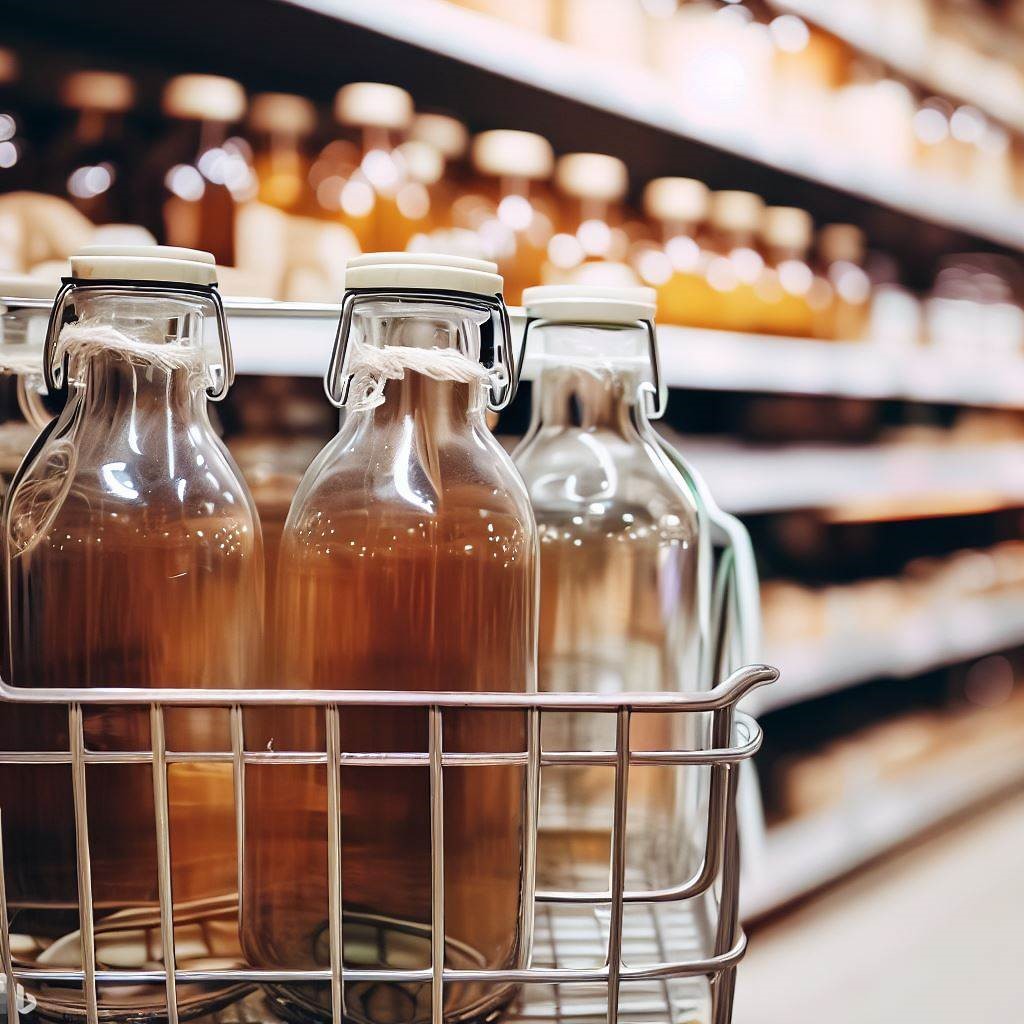
1. What is Kombucha?
Kombucha is a fermented tea beverage that originated in East Asia. It is made by fermenting sweetened tea with a culture known as SCOBY (Symbiotic Culture of Bacteria and Yeast). The fermentation process creates a tangy, effervescent drink with a wide range of potential health benefits.
2. The Benefits of Brewing Kombucha at Home
Brewing kombucha at home offers several advantages. Firstly, it allows you to have full control over the ingredients and flavors of your brew. You can experiment with different tea blends, sweeteners, and fruit flavors to create a kombucha that suits your taste preferences. Additionally, brewing your own kombucha is more cost-effective compared to buying it from stores, especially in the long run. Lastly, homemade kombucha is incredibly rewarding, as you get to witness the entire fermentation process and enjoy the fruits of your labor.
3. Essential Kombucha Brewing Supplies
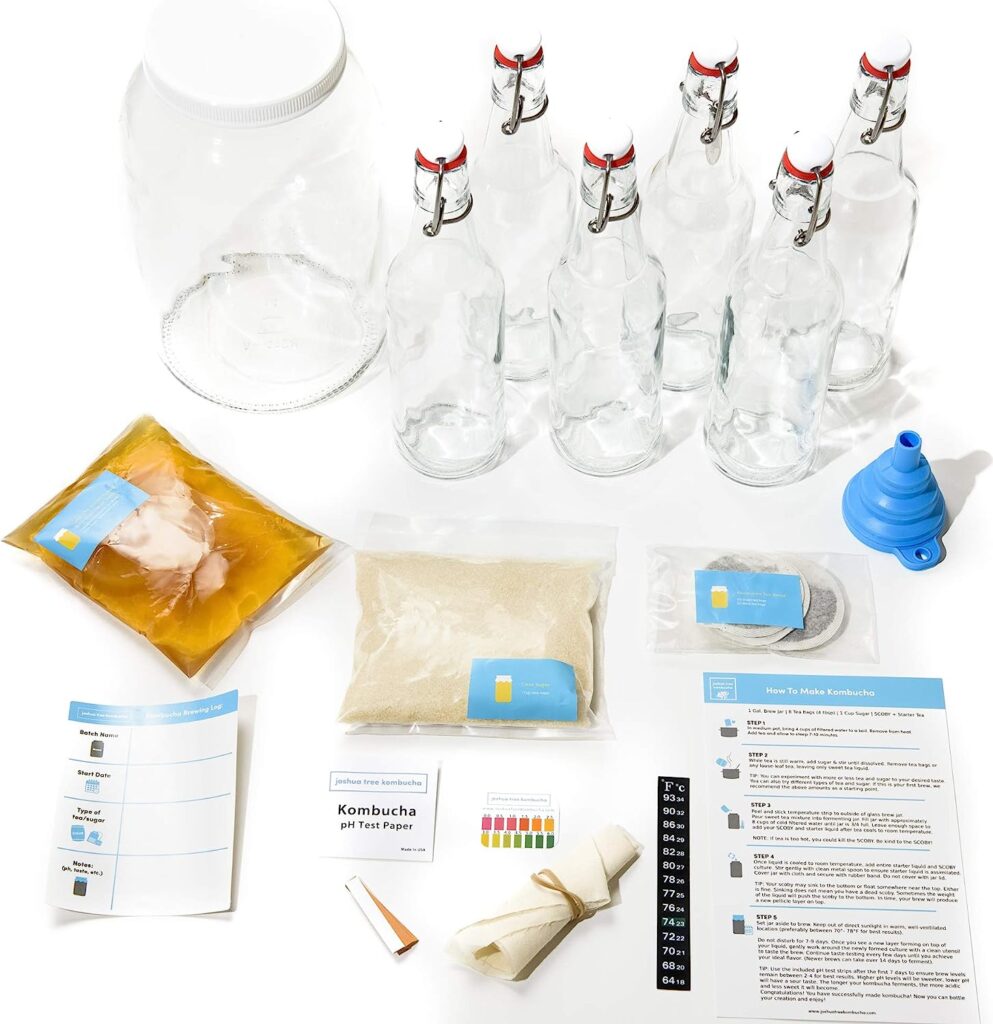
Glass Vessels for First or Continuous Fermentation
Glass jars are essential for brewing kombucha. These brewing vessels provide a non-reactive environment for fermentation and allow you to observe the process. Opt for jars with a wide mouth for easy access and cleaning. Want to do a Continuous Brew Setup?
SCOBY (Symbiotic Culture of Bacteria and Yeast)
A SCOBY is the living culture responsible for fermenting the tea and turning it into kombucha. You can obtain a SCOBY from a trusted source or even grow your own over time. Make sure to handle the SCOBY with clean hands and store it properly between brews.
Tea (Black Tea is most Traditional)
High-quality tea is crucial for making delicious kombucha. Choose organic, unflavored tea varieties such as black, green, or white tea. Avoid teas with added oils, as they can harm the SCOBY. We have a review on our Top 10 Tea Flavors as well you can check out.
Cane Sugar
During fermentation, the SCOBY feeds on cane sugar, producing the desired tanginess and effervescence in kombucha. Opt for organic cane sugar or other unrefined sugars like coconut sugar or honey. Avoid using artificial sweeteners or stevia, as they may hinder fermentation.
pH Testing Strips
Monitoring the pH level of your kombucha is important for ensuring a safe and balanced fermentation process. pH testing strips help you determine whether your brew is within the optimal range (around 2.5-3.5). This ensures the right conditions for the SCOBY to thrive and prevents the growth of harmful bacteria.
Brewing Cloth or Coffee Filter
Covering your brewing jar with a breathable cloth or coffee filter allows airflow while preventing dust, insects, and contaminants from entering. This helps maintain a clean and sanitary environment for fermentation.
Air Tight Bottles for Fermentation
Once your kombucha has reached the desired level of carbonation, you’ll need sturdy bottles for bottling and storing the finished product. Look for bottles that are designed to withstand pressure, such as flip-top bottles or glass jars with airtight seals.
Funnel
A funnel is a handy tool for transferring your brewed kombucha into bottles without spills or wastage. Choose a funnel that fits the size of your bottles and has a wide opening for easy pouring.
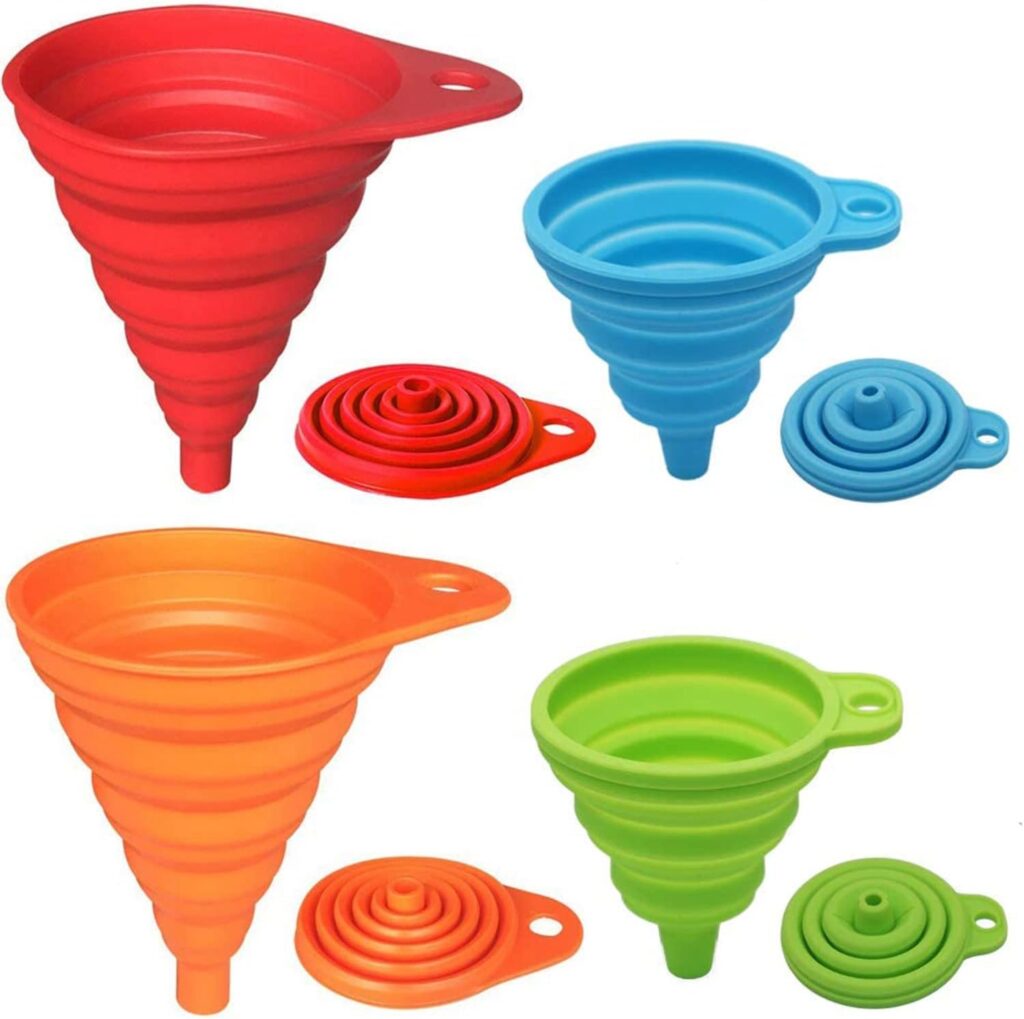
Thermometer
Monitoring the temperature of your brew is crucial for the health of the SCOBY. A thermometer helps you maintain the ideal temperature range for fermentation, usually between 68°F and 85°F (20°C and 29°C).
All-in-one Brewing Starter Kits
If you’re new to kombucha brewing and unsure where to start, consider investing in a brewing starter kit. These kits often include the essential supplies mentioned above, along with detailed instructions to guide you through the process.
4. Where to Buy Kombucha Supplies

When it comes to purchasing kombucha supplies, you have a few options:
Local Health Food Stores
Many health food stores carry a selection of kombucha brewing supplies. Visit your local store and explore their offerings. You may also find knowledgeable staff who can provide guidance and recommendations based on your brewing needs. You’ll need to do reserach on local health food stores in your area.
Online Retailers
The internet provides a vast array of options for purchasing kombucha supplies. Numerous online retailers specialize in brewing equipment, SCOBYs, teas, and other necessary items. Make sure to read product descriptions, reviews, and compare prices to find the best deals. Our preference for large inventory, ease and quick shipping is Amazon for online purchasing!
5. Tips for Choosing High-Quality Kombucha Supplies
When selecting kombucha supplies, keep the following tips in mind:
Read Customer Reviews
Before making a purchase, read customer reviews to get an idea of the quality and reliability of the product. Look for feedback on the effectiveness, durability, and overall satisfaction of the supplies. We only look to buy products online with 4 stars or better. Let others confirm that the product is good before you try.
Look for Trusted Brands
Choose supplies from reputable brands known for their commitment to quality. Trusted brands often prioritize sourcing high-grade materials and provide detailed instructions for optimal brewing. Amazon offers many trusted brands and is offers many choices on picking quality products that will be delivered to your doorstep in a day or two!
Check for Certifications
If you prefer organic or sustainably sourced ingredients, look for certifications such as USDA Organic or Fair Trade labels. These certifications ensure that the supplies meet specific standards and are produced responsibly. We really prefer you shop for organic ingredients when buying kombucha supplies. It is a little more costly but to us, worth the price of admission!
Compare Prices

While quality is essential, it’s also wise to compare prices to get the best value for your money. Take note of any promotions, discounts, or bundle offers that can help you save on your kombucha supplies. But remember cheapest is not always best so be thoughtful on how you choose Shop Kombucha Supplies
Conclusion
Embarking on the journey of brewing your own kombucha can be both exciting and rewarding. By acquiring the essential kombucha supplies and following proper brewing techniques, you can enjoy the satisfaction of crafting your own probiotic-rich, fizzy beverages. Remember to prioritize quality, choose reliable suppliers, and experiment with different flavors and ingredients to customize your kombucha to your liking. Whether you’re a beginner or an experienced brewer, having the right kombucha supplies is vital for a successful brewing experience.
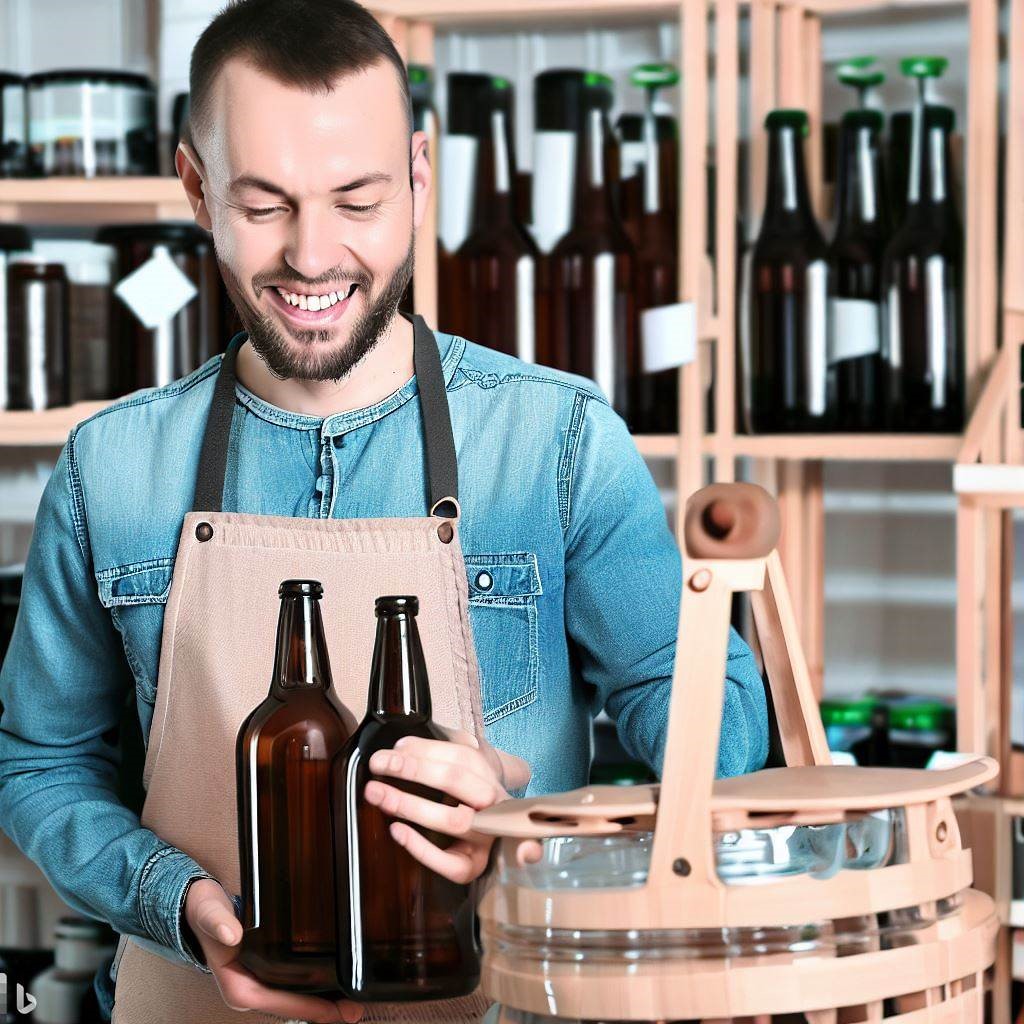
By investing in high-quality glass jars, a SCOBY, tea, sugar, pH testing strips, brewing cloth or coffee filter, bottles for fermentation, a funnel, airlock and fermentation lids, a thermometer, and perhaps even a brewing starter kit, you’ll be equipped with the necessary tools to create delicious kombucha in the comfort of your own home.
When it comes to purchasing kombucha supplies, you have several options available. Local health food stores often carry a selection of brewing equipment and ingredients. Visiting these stores not only allows you to examine the supplies firsthand but also provides an opportunity to seek guidance from knowledgeable staff.
Alternatively, online retailers offer a wide range of kombucha supplies, making it convenient to browse and compare products. Take advantage of customer reviews, check for trusted brands, and consider certifications such as USDA Organic or Fair Trade when making your purchasing decisions. Don’t forget to compare prices to ensure you’re getting the best value for your investment.
Wrapping Up
Brewing your own kombucha is a fulfilling and cost-effective way to enjoy this popular fermented beverage and replace more traditional drinks that are less healthy like soda pop. By acquiring the essential kombucha supplies and following the outlined guidelines, you’ll be well-prepared to create unique, flavorful, and probiotic-rich kombucha that suits your taste preferences.

FAQs (Shop Kombucha Supplies)
- Can I reuse the SCOBY for multiple batches of kombucha? Absolutely! With proper care and maintenance, a healthy SCOBY can be reused for multiple batches of kombucha. Just ensure that you clean and store it correctly between brews.
- How long does it take to brew kombucha? The fermentation process typically takes around 7 to 14 days, depending on various factors such as temperature, desired flavor profile, and the strength of the SCOBY. Remember to taste your brew along the way to achieve the desired level of tanginess and carbonation.
- Can I add fruits or herbs to my kombucha during fermentation? Yes, you can! Adding fruits, herbs, or even spices to your kombucha during the secondary fermentation stage can infuse it with delightful flavors. Just make sure to use clean and ripe ingredients and adjust the brewing time accordingly.
- How should I store my bottled kombucha? Once your kombucha has completed fermentation and reached the desired carbonation level, store the bottles in a cool, dark place, such as a pantry or refrigerator. We prefer the refrigerator at GMK as then you don’t need to burp the bottles daily! This helps maintain the flavor and carbonation while slowing down the fermentation process.
- Is it normal to see sediment in my bottled kombucha? Yes, it is normal to find some sediment or yeast strands in the bottom of your bottled kombucha. This is a natural byproduct of the fermentation process and is harmless to consume. You can choose to strain the kombucha before drinking if you prefer a clearer appearance.
- Check our our larger and comprehensive FAQ on GMK’s site.
With the information provided in this article and the right kombucha supplies at your disposal, you’re ready to embark on your brewing journey. Enjoy the process, get creative with flavors, and savor the delightful and healthful rewards of homemade kombucha! Happy Brewing y’all!
Thank you friends for checking out GMK’s page on Shop Kombucha Supplies for you. Read on!

